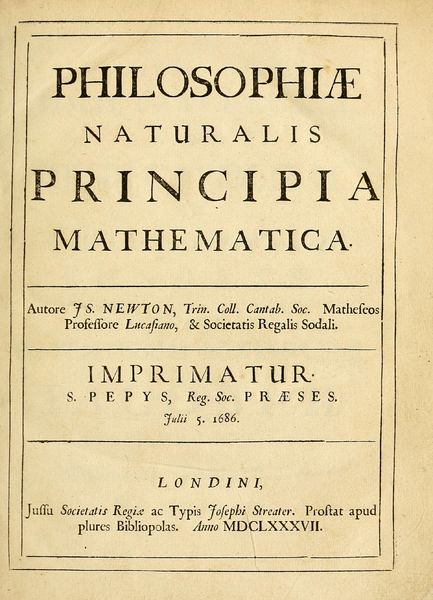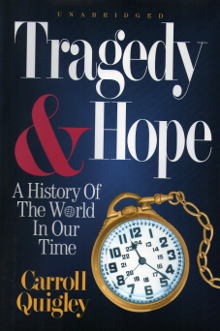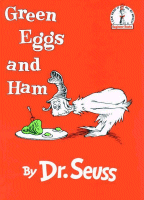It looks like you're using an Ad Blocker.
Please white-list or disable AboveTopSecret.com in your ad-blocking tool.
Thank you.
Some features of ATS will be disabled while you continue to use an ad-blocker.
share:
The Diary of Anne Frank.
Reminds us of the evil that can take over a whole nation because of war, poverty, then more war.
Reminds us of the evil that can take over a whole nation because of war, poverty, then more war.
Agartha
I was going to say Darwin too, but there is a hidden gem that paved the way for modern science:
"Philosophiæ Naturalis Principia Mathematica" by Isaac Newton, a true genius. Space travel could have never happened without his findings.

We are, all of us, still in debt to Newton.
Mike Grouchy
reply to post by mikegrouchy
It can be translated and this book has been translated into many languages. Not only can you buy the book, the author also does lectures around the world explaining this and other books which he has written. It is an explanation of the world through Islamic teachings.
It can be translated and this book has been translated into many languages. Not only can you buy the book, the author also does lectures around the world explaining this and other books which he has written. It is an explanation of the world through Islamic teachings.
edit on 11-4-2014 by
168617 because: (no reason given)
the2ofusr1
Tragedy And Hope, subtitled "A History Of The World In Our Time" is an epic and scholarly work of history written by Carroll Quigley. The book covers the period of roughly 1880 to 1963 and is multidisciplinary in nature though perhaps focusing on the economic problems brought about by the First World War and the impact these had on subsequent events. While global in scope, the book focusses on Western civilization, because Quigley has more familiarity with the West. en.wikipedia.org...

Thanks a ton the2ofusr1,
I have never been aware of this one before.
Civilizations tend to evolve through a sequence of phases as follows:
1.Mixture
2. Gestation
3. Expansion
4. Conflict
5. Universal Empire
6. Decay
7. Invasion
Something new to read.
Sweet.
Mike Grouchy
edit on 11-4-2014 by mikegrouchy because: (no reason given)
MOMof3
The Diary of Anne Frank.
Reminds us of the evil that can take over a whole nation because of war, poverty, then more war.

Anne Franks father,
visiting the attic again
where they spent the war.
From what I understand, he was the only survivor of the family.
Mike Grouchy
edit on 11-4-2014 by mikegrouchy because: (no reason given)
Good idea for a thread... but there are so many choices it's impossible to say which is the best. If we could nominate research papers I'd say the
Bitcoin white paper. Otherwise "A Universe from Nothing" by Lawrence M. Krauss is fairly impressive. As for old books, Euclid's Elements is right up
there with the best. Edit: although it's more than 471 years old.
edit on 11/4/2014 by ChaoticOrder because: (no reason given)
ChaoticOrder
Good idea for a thread... but there are so many choices it's impossible to say which is the best. If we could nominate research papers I'd say the Bitcoin white paper. Otherwise "A Universe from Nothing" by Lawrence M. Krauss is fairly impressive. As for old books, Euclid's Elements is right up there with the best. Edit: although it's more than 471 years old.
Well I tried to emphasize "most important" over "best".
For best I would probably choose Tolkien. For me anyway. But hardly the most important.
the Bitcoin white paper could turn out to be very important, but isn't it too soon to tell?
As to Euclid's Elements... that would be in the top 3, in my opinion, most important works of all-time.
Here is my choice.
[atsimg]http://files.abovetopsecret.com/images/member/0500b01af88d.jpg[/atsimg]
Some quotes from random-online-book-store Customer Reviews
Thomas Kuhn performed a signal service for historiography of science by studying how new ideas and new ways of thinking displace the old. He invented the term 'paradigm shift' to describe what happens when 'normal science' runs into 'anomalies' and enters a 'crisis', which in turn leads to a 'scientific revolution'. Nobody had heard of such things before, so Kuhn had a scoop. He sketched some historical examples in iconoclastic style; the result is this short book, first published forty years ago and still wowing Cultural Studies students today.
Before Kuhn, we were taught in school that scientific progress was linear, that it was an unending progression of refinements and developments, with one "truth" leading to the next "truth." Kuhn's insights including pointing out that such a linear progression was mostly a lie. His thesis was that the major developments in science were mostly revolutionary. That some "truths" turned out to be false. Astronomy was revolutionized by Galielo and Copernicus, and man was divested from the center of the universe. Physics was revolutionized by Newton. Biology and Darwin. It didn't hurt that plate tectonics came along shortly after Kuhn published, and Kuhn looked like his model was predictive, too.
My favorite aspect of this book is how Kuhn describes people's blind resistance to new ideas and technology, even if it is something that will ultimately benefit mankind. In a moment of dark truth, Kuhn states that in many cases it is not a matter of convincing those who already established, but rather convincing the next generation and simply waiting for the current one to die off. It's both a guide to understanding how to really effect change in a world of stubborn thought, as well as a detailed history of innovations and the process required to make them mainstream. In its scathing criticism of the scientific establishment, it unveils how much further we could be if we did in fact adopt a linear structure for improving technology.
This book
has made me
more open minded.
What more can I say.
Mike Grouchy
Coagula
Gaia: A New Look at Life on Earth
The following quote is from the Wikipedia page on "The Gaia hypothesis."
Many scientists in particular also criticised the approach taken in his popular book Gaia, a New Look at Life on Earth for being teleological -- a belief that things are by purpose aimed towards a goal. Responding to this critique in 1990, Lovelock stated, "Nowhere in our writings do we express the idea that planetary self-regulation is purposeful, or involves foresight or planning by the biota".
wikipedia Gaia hypothesis
Many of us _want_ the Gaia hypothesis to be important, but I reserve my opinion on if it has become that. Yet.
Mike Grouchy
edit on 11-4-2014 by mikegrouchy because: (no reason given)
reply to post by mikegrouchy
I don't think so, the ideas presented in that white paper have been tested in the real world and we know it works, we know that we don't need banks to manage our money for us, we can use decentralized networks and the power of mathematics to send money all around the world almost instantly with extremely low fees... there is no putting that cat back into the bag, the advantages of cryptocurrency cannot be denied, the traditional money system looks completely obsolete in the shadow of cryptocurrency. Satoshi has revolutionized the way we and our future generations will think about money. It's been about 6 years since that white paper was released to the world, and since that time many different forms of cryptocurrency have been built. Cryptocurrency is now a multi-billion dollar market and it's not slowing down any time soon. If that doesn't prove how important cryptocurrency is I don't know what will.
No doubt.
Haven't read it, but it looks like a good book with an important message. In fact Bitcoin is a prime example of a technological break through which has caused a spontaneous 'paradigm shift'. Before Bitcoin came along most people thought that it was impossible to create a fully decentralized currency.
the Bitcoin white paper could turn out to be very important, but isn't it too soon to tell?
I don't think so, the ideas presented in that white paper have been tested in the real world and we know it works, we know that we don't need banks to manage our money for us, we can use decentralized networks and the power of mathematics to send money all around the world almost instantly with extremely low fees... there is no putting that cat back into the bag, the advantages of cryptocurrency cannot be denied, the traditional money system looks completely obsolete in the shadow of cryptocurrency. Satoshi has revolutionized the way we and our future generations will think about money. It's been about 6 years since that white paper was released to the world, and since that time many different forms of cryptocurrency have been built. Cryptocurrency is now a multi-billion dollar market and it's not slowing down any time soon. If that doesn't prove how important cryptocurrency is I don't know what will.
As to Euclid's Elements... that would be in the top 3, in my opinion, most important works of all-time.
No doubt.
Here is my choice.
Haven't read it, but it looks like a good book with an important message. In fact Bitcoin is a prime example of a technological break through which has caused a spontaneous 'paradigm shift'. Before Bitcoin came along most people thought that it was impossible to create a fully decentralized currency.
edit on 11/4/2014 by ChaoticOrder because: (no reason given)
reply to post by mikegrouchy
A bit more for you on the Tragedy and Hope ..There is a web site dedicated to Quigleys work that also has other books mentioned .There is quite a controversy with the printing of the book and the destruction of the plates .This is a interview that is 48 min long www.youtube.com... This is a discussion with John Taylor Gatto and Richard Grove on T&H www.youtube.com... This is a link to a 7 part series www.youtube.com... Quigley was asked by thee CFR to write a history for them .He was given access to all of their historical documents ...Peter Dale Scott has written on what he calls The Deep State and COG (Continuity of Government ) Quigleys understanding of the powers behind the scenes and Scotts understanding of that power structure brings the past history up to date ...peace
A bit more for you on the Tragedy and Hope ..There is a web site dedicated to Quigleys work that also has other books mentioned .There is quite a controversy with the printing of the book and the destruction of the plates .This is a interview that is 48 min long www.youtube.com... This is a discussion with John Taylor Gatto and Richard Grove on T&H www.youtube.com... This is a link to a 7 part series www.youtube.com... Quigley was asked by thee CFR to write a history for them .He was given access to all of their historical documents ...Peter Dale Scott has written on what he calls The Deep State and COG (Continuity of Government ) Quigleys understanding of the powers behind the scenes and Scotts understanding of that power structure brings the past history up to date ...peace
edit on 11-4-2014 by the2ofusr1 because: (no reason given)
ETA the website Tragedy and
Hope www.tragedyandhope.com...edit on 11-4-2014 by the2ofusr1 because: (no reason given)
reply to post by mikegrouchy
"James Lovelock: environmentalism has become a religion
Scientist behind the Gaia hypothesis says environment movement does not pay enough attention to facts and he was too certain in the past about rising temperatures" www.theguardian.com... "The 94 year-old scientist, famous for his Gaia hypothesis that Earth is a self-regulating, single organism, also said that he had been too certain about the rate of global warming in his past book, that "it’s just as silly to be a [climate] denier as it is to be a believer” and that fracking and nuclear power should power the UK, not renewable sources such as windfarms."
"James Lovelock: environmentalism has become a religion
Scientist behind the Gaia hypothesis says environment movement does not pay enough attention to facts and he was too certain in the past about rising temperatures" www.theguardian.com... "The 94 year-old scientist, famous for his Gaia hypothesis that Earth is a self-regulating, single organism, also said that he had been too certain about the rate of global warming in his past book, that "it’s just as silly to be a [climate] denier as it is to be a believer” and that fracking and nuclear power should power the UK, not renewable sources such as windfarms."
It's Newton and Darwin 1 and 2...could there be an argument for anything else?
I suppose you could bump Darwin a step or two but Newton's work can't be
moved from the top spot....and I hate math.
Though neither are very pleasant reading on a Saturday afternoon by the pool.
My favorite book is Animal Farm. I know it's low-brow but I'm more into
the human condition than science and it describes our struggle to cope
with our animal instinct vs our human intellect in such a cool way...love that book
I suppose you could bump Darwin a step or two but Newton's work can't be
moved from the top spot....and I hate math.
Though neither are very pleasant reading on a Saturday afternoon by the pool.
My favorite book is Animal Farm. I know it's low-brow but I'm more into
the human condition than science and it describes our struggle to cope
with our animal instinct vs our human intellect in such a cool way...love that book
MOMof3
Reminds us of the evil that can take over a whole nation because of war, poverty, then more war.
!
edit on 11-4-2014 by ColCurious because: (no reason given)
rivalMy favorite book is Animal Farm. I know it's low-brow but I'm more into
the human condition than science and it describes our struggle to cope
with our animal instinct vs our human intellect in such a cool way...love that book
I'm going with Animal Farm too but Brave New World, 1984, or Lord of the Flies could easily be substituted because they all tell the same story. I don't think of Animal Farm as low brow, I think Orwell did a fantastic job with that book and using animals to describe the various Soviet figures was a stroke of genius for a couple of reasons.
In my humble opinion if anyone in that genre was low brow it was Ayn Rand, I don't see anything intellectual in her writing at all and sometimes she seemed downright petty and juvenile.
reply to post by mikegrouchy
it is difficult to nail down any single book or author. but i feel inclined to post. so here is my contributions to the thread.
my choice is from an author named Buckminster Fuller. one of the most brilliant minds of the 20th century.
author: Buckminster Fuller
Title: Grunch of Giants
Here Buckminster Fuller takes on the gigantic corporate megaliths that exert increasing control over every aspect of daily life. In the form of a modern allegory, he traces the evolution of these multinational giants from the post-World War II military-industrial complex to the current army of abstract legal entities known as the corporate world.
it is difficult to nail down any single book or author. but i feel inclined to post. so here is my contributions to the thread.
my choice is from an author named Buckminster Fuller. one of the most brilliant minds of the 20th century.
author: Buckminster Fuller
Title: Grunch of Giants
Here Buckminster Fuller takes on the gigantic corporate megaliths that exert increasing control over every aspect of daily life. In the form of a modern allegory, he traces the evolution of these multinational giants from the post-World War II military-industrial complex to the current army of abstract legal entities known as the corporate world.
reply to post by ColCurious
I was twelve in 1963 when I read The Diary of Anne Frank. My father was in WW2 and that book really awoke me to the evil of wars. It was the first time I learned of genocide. That book made me wonder why which led me to study what led the Nazi party to power.
I was twelve in 1963 when I read The Diary of Anne Frank. My father was in WW2 and that book really awoke me to the evil of wars. It was the first time I learned of genocide. That book made me wonder why which led me to study what led the Nazi party to power.
new topics
-
Has Tesla manipulated data logs to cover up auto pilot crash?
Automotive Discussion: 11 minutes ago -
whistleblower Captain Bill Uhouse on the Kingman UFO recovery
Aliens and UFOs: 5 hours ago -
1980s Arcade
General Chit Chat: 7 hours ago -
Deadpool and Wolverine
Movies: 8 hours ago -
Teenager makes chess history becoming the youngest challenger for the world championship crown
Other Current Events: 9 hours ago -
CIA botched its handling of sexual assault allegations, House intel report says
Breaking Alternative News: 10 hours ago
top topics
-
Lawsuit Seeks to ‘Ban the Jab’ in Florida
Diseases and Pandemics: 12 hours ago, 20 flags -
Starburst galaxy M82 - Webb Vs Hubble
Space Exploration: 14 hours ago, 13 flags -
The Superstition of Full Moons Filling Hospitals Turns Out To Be True!
Medical Issues & Conspiracies: 16 hours ago, 8 flags -
CIA botched its handling of sexual assault allegations, House intel report says
Breaking Alternative News: 10 hours ago, 8 flags -
15 Unhealthiest Sodas On The Market
Health & Wellness: 14 hours ago, 6 flags -
whistleblower Captain Bill Uhouse on the Kingman UFO recovery
Aliens and UFOs: 5 hours ago, 6 flags -
1980s Arcade
General Chit Chat: 7 hours ago, 4 flags -
Deadpool and Wolverine
Movies: 8 hours ago, 3 flags -
Teenager makes chess history becoming the youngest challenger for the world championship crown
Other Current Events: 9 hours ago, 3 flags -
Has Tesla manipulated data logs to cover up auto pilot crash?
Automotive Discussion: 11 minutes ago, 0 flags
active topics
-
"We're All Hamas" Heard at Columbia University Protests
Social Issues and Civil Unrest • 199 • : FlyersFan -
It takes One to Be; Two to Tango; Three to Create.
Philosophy and Metaphysics • 7 • : Terpene -
Take it to the Media when you protest.. Don't let them ignore you!
Education and Media • 4 • : SchrodingersRat -
They Killed Dr. Who for Good
Rant • 62 • : FlyersFan -
Has Tesla manipulated data logs to cover up auto pilot crash?
Automotive Discussion • 0 • : Cavemannick -
Lawsuit Seeks to ‘Ban the Jab’ in Florida
Diseases and Pandemics • 22 • : Disgusted123 -
Definitive 9.11 Pentagon EVIDENCE.
9/11 Conspiracies • 421 • : Lazy88 -
1980s Arcade
General Chit Chat • 8 • : F2d5thCavv2 -
What is a dream
The Gray Area • 27 • : wrayth -
Europe declares war on Russia?
World War Three • 61 • : F2d5thCavv2

